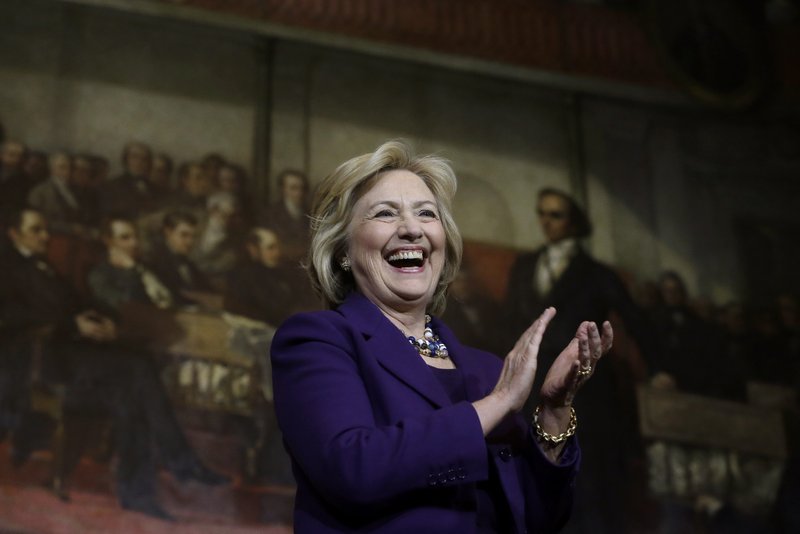BOSTON — Hillary Rodham Clinton called for hundreds of billions in new federal spending on infrastructure on Sunday, kicking off what her campaign says will be a month-long focus on job creation.
Standing before a backdrop of union workers and students, the Democratic presidential frontrunner vowed to rebuild "ladders of opportunity" and give a greater number of Americans a "middle-class lifestyle."
"Investing infrastructure makes our economy more productive and competitive," she said at the launch of "Hard Hats for Hillary," a new effort by her campaign to mobilize union workers. "To build a strong economy for our future, we must start by building strong infrastructure today."
Clinton was joined by Boston Mayor Marty Walsh, who recently endorsed her campaign, and a number of labor unions backing her bid.
"Get your sledgehammers ready because we have a glass ceiling to demolish," Walsh told a cheering audience crowded into historic Faneuil Hall.
The new infrastructure proposals make up the most expensive portion of Clinton's economic agenda, which her campaign said would exceed the $350 billion she's already proposed for a college affordability plan. Along with the $275 billion in infrastructure funds, she plans to call for new investments in manufacturing and research in the coming weeks.
Her announcement comes as Clinton faces down challenges from Vermont Sen. Bernie Sanders and former Maryland Gov. Martin O'Malley, who've both stressed the need to increase direct federal spending. Sanders has proposed legislation that would provide more than $1 trillion in new infrastructure spending over the next five years, paid for by raising taxes on the wealthy and corporations.
Clinton's campaign said she would allocate $250 billion to direct investment by the federal government in crumbling roads, bridges, public transit and airports. An additional $25 billion would fund a national infrastructure bank, an idea unveiled by President Barack Obama in his first term that has been blocked repeatedly by congressional Republicans. The bank would support $225 billion in loans intended to spur private investment in struggling projects, adding a total of $500 billion in new infrastructure funds into the economy, her campaign estimates.
